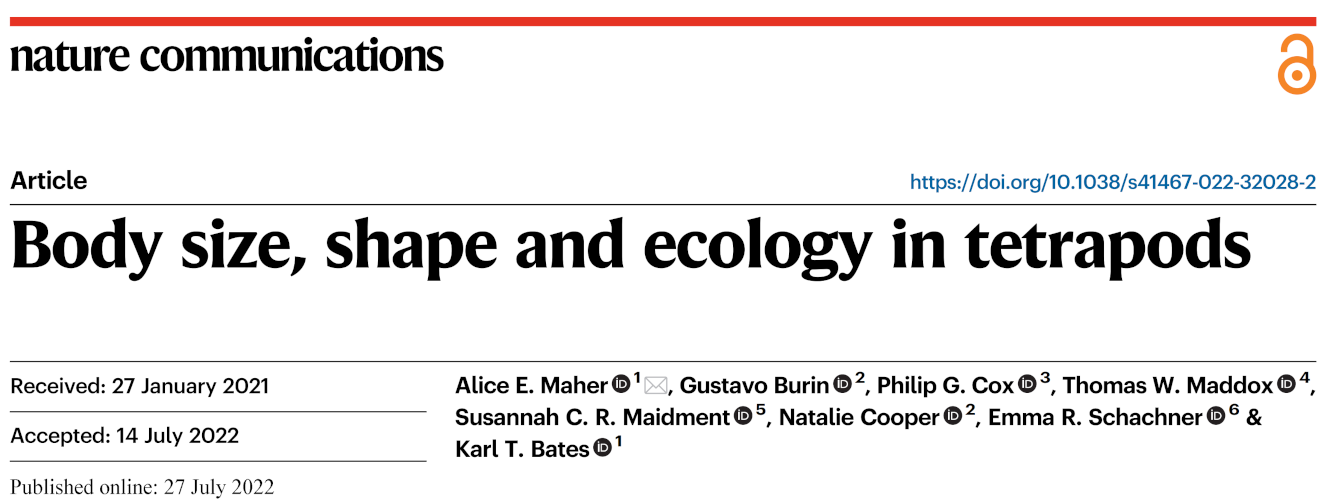 Our paper in Nature Communications
Our paper in Nature CommunicationsBody size, shape and ecology in tetrapods
Abstract
Body size and shape play fundamental roles in organismal function and it is expected that animals may possess body proportions that are well-suited to their ecological niche. Tetrapods exhibit a diverse array of body shapes, but to date this diversity in body proportions and its relationship to ecology have not been systematically quantified. Using whole-body skeletal models of 410 extinct and extant tetrapods, we show that allometric relationships vary across individual body segments thereby yielding changes in overall body shape as size increases. However, we also find statistical support for quadratic relationships indicative of differential scaling in small-medium versus large animals. Comparisons of locomotor and dietary groups highlight key differences in body proportions that may mechanistically underlie occupation of major ecological niches. Our results emphasise the pivotal role of body proportions in the broad-scale ecological diversity of tetrapods.